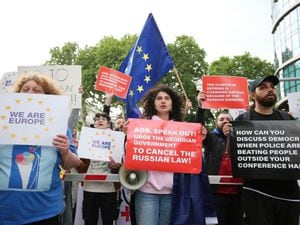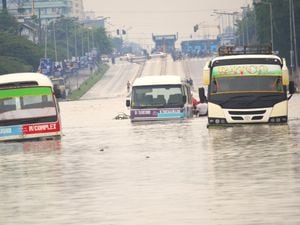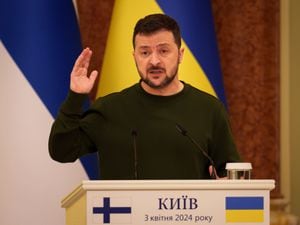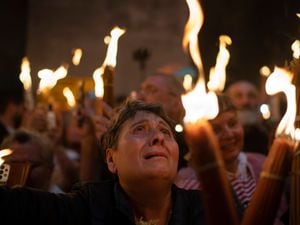Huge crowd attends Montenegro funeral of bishop who died with coronavirus
Crowds outside the church did not keep anti-virus distance and not all were wearing face masks.
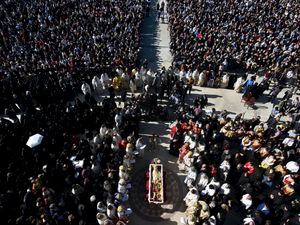
Thousands of people have poured into the streets in Montenegro despite soaring coronavirus infections to mourn the death of the top Serbian Orthodox Church bishop in the country.
Huge crowds gathered around the main church in the capital where the body of Bishop Amfilohije was brought in an open coffin ahead of Sunday’s funeral.
Crowds outside the church did not keep anti-virus distance and not all were wearing face masks.
Amfilohije, 82, died on Friday after contracting the coronavirus weeks ago.
The bishop played a key role in the pro-Serb movement in Montenegro that in the August election defeated a long-ruling pro-Western coalition.
Along with much of the Balkans and central and eastern Europe, Montenegro has seen a surge in infections.

Health authorities have warned mourners to respect anti-virus rules.
Bishop Amfilohije was highly popular among pro-Serb Montenegrins who have been seeking closer ties with neighboring Serbia following Montenegro’s split from a joint state in 2006.
The Serbian Orthodox Church remains the main church in the country.
The bishop played a key role in a movement that helped defeat in the August election a long-ruling pro-Western government.
The church in Montenegro also has led months of protests this year against a religious property law, arguing that the government wants to take away its property, which officials have denied.
Montenegro’s outgoing leadership led the country to independence from Serbia and into Nato in 2017, defying Russia.
Bishop Amfilohije and the Serbian Orthodox Church in Montenegro were against independence from Serbia, Moscow’s main Balkan ally.

